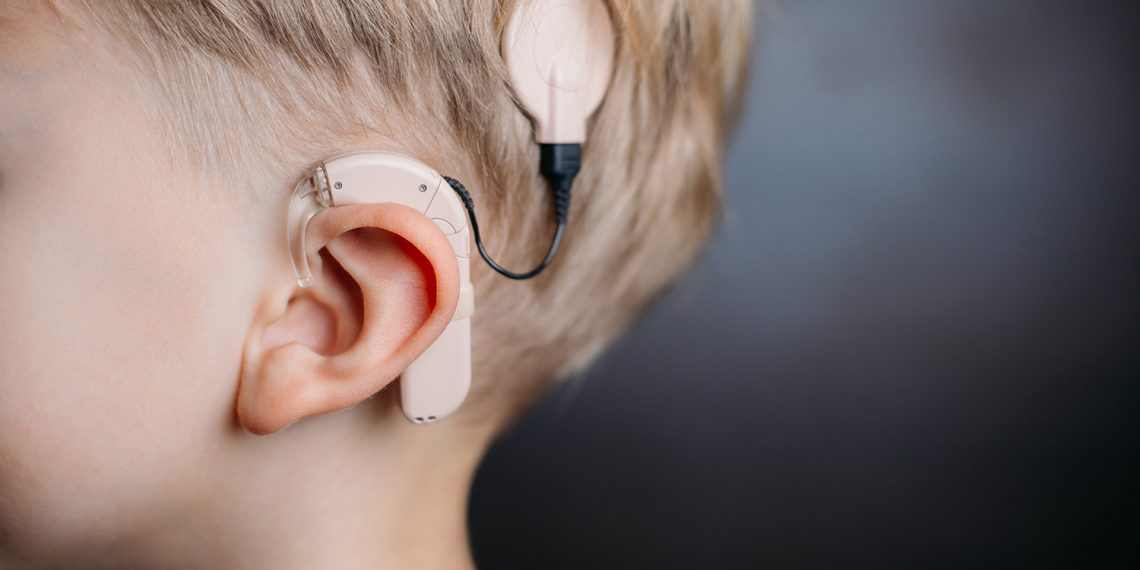Cochlear implants are suitable for people who have significant hearing loss, primarily caused by damage to the inner ear (cochlea) or the nerve pathways that transmit sound from the inner ear to the brain. People with a type of hearing loss called sensorineural hearing loss are typically candidates for cochlear implants.
Children with hearing loss as young as 12 months old can benefit from cochlear implants, and they have been successfully implanted in children and adults up to the age of 90. However, there are specific eligibility criteria that must be met before a person can receive a cochlear implant.
First, the person must have a profound hearing loss, defined as the inability to hear quieter than 90 decibels (dB) in their better-hearing ear. This type of hearing loss is typically caused by damage to the inner ear or the nerve pathways that transmit sound to the brain.
Second, the person must have difficulty understanding speech even with the use of hearing aids. Cochlear implants are intended to help people understand speech and communicate more effectively, so if a person can still understand speech with the use of hearing aids, a cochlear implant may not be necessary.
Third, the person must be a candidate for surgery. Cochlear implants require a surgical procedure to implant the device, so a person must be in good health and not have any medical conditions that would make surgery dangerous. The person must also be willing to commit to a rehabilitation process, including therapy and training after the implant is activated.
Fourth, the person must have realistic expectations for what a cochlear implant can do. Cochlear implants can significantly improve a person’s ability to hear and understand speech, but they do not restore normal hearing. Some people may still have trouble understanding speech in noisy environments, and they may need to use additional assistive devices, such as FM systems or loop systems, to improve their hearing in these situations.
Cochlear implants are suitable for people with profound sensorineural hearing loss who have difficulty understanding speech even with the use of hearing aids, are eligible for surgery, and have realistic expectations for what the device can do. It is important to note that the decision to receive a cochlear implant should be made in consultation with an audiologist, an ear, nose, and throat (ENT) physician, and a cochlear implant center.
How Can I Find Cochlear Implants That Best Suit My Condition?

Finding the right cochlear implant for your specific needs and hearing loss can be a complex process. Here are several steps you can follow to help find the best cochlear implant for you:
Schedule a hearing evaluation: Your first step is to schedule a hearing evaluation with an audiologist. The audiologist will perform a series of tests to determine the type and severity of your hearing loss and evaluate your candidacy for a cochlear implant.
Research different cochlear implant manufacturers: Once you have been evaluated by an audiologist, you can start researching the different cochlear implant manufacturers. There are several companies that manufacture cochlear implants, including Cochlear, Med-El, and Advanced Bionics. Each company has its own models of cochlear implants, with varying features and capabilities. You can visit their websites to learn more about their products and compare their features and capabilities.
Consult with a cochlear implant center: After researching the different cochlear implant manufacturers, you should consult with a cochlear implant center. A cochlear implant center is a specialized facility staffed by a team of professionals, including audiologists, speech therapists, and surgeons, who are trained in evaluating, selecting, and implementing cochlear implants. The team at a cochlear implant center can help you determine which cochlear implant is best suited to your needs and hearing loss.
Ask for referrals: You can also ask for referrals from friends, family members, or other individuals who have received cochlear implants. These individuals can provide you with valuable information and insights about their experiences with different cochlear implant models and the cochlear implant center they used.
Consider your lifestyle and hearing needs: When evaluating different cochlear implant models, it’s important to consider your lifestyle and hearing needs. For example, if you are an active person who enjoys outdoor activities, you may want to consider a water-resistant cochlear implant model. If you have difficulty hearing in noisy environments, you may consider a cochlear implant model with advanced noise reduction features.
Ask your insurance provider: Before making a final decision, it’s important to check with your insurance provider to determine what type of cochlear implants are covered by your insurance plan. Some insurance plans may only cover specific models or brands of cochlear implants, so it’s important to understand what your insurance covers before making a final decision.
Seek a second opinion: Before making a final decision, you may also want to seek a second opinion from another audiologist or cochlear implant center. This can help you confirm that you are making the right decision and choosing the best cochlear implant for your specific needs and hearing loss.
Finding the right cochlear implant requires careful research, consultation with professionals, and consideration of your specific needs and hearing loss. By following these steps, you can help ensure that you find the best cochlear implant for you.




